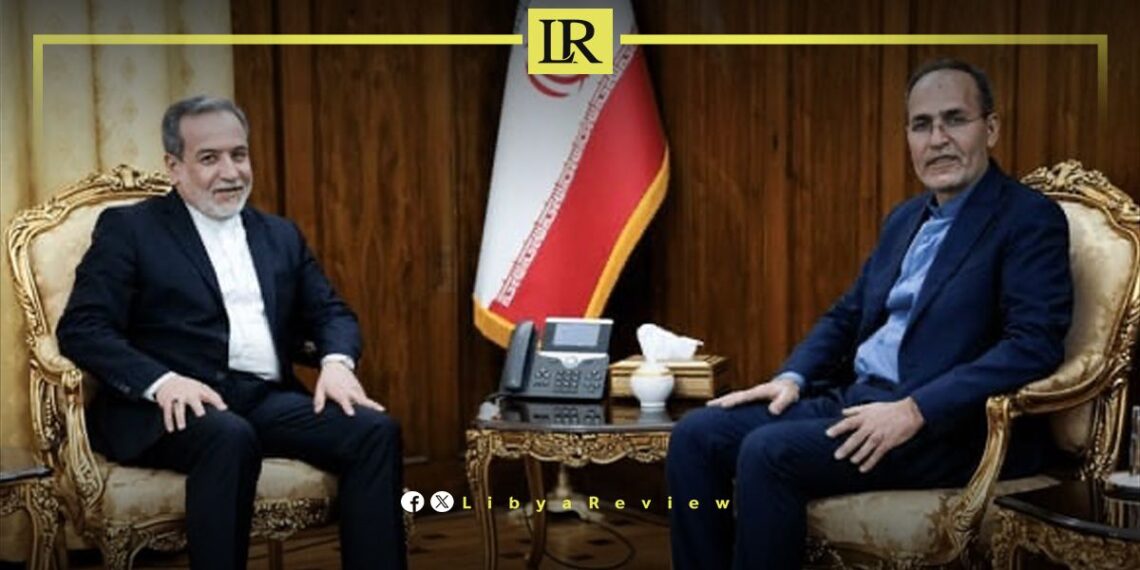Iranian Foreign Minister Abbas Araghchi has underscored the importance of enhancing economic cooperation with Libya, highlighting the need to develop stronger bilateral ties between the two countries.
During a meeting with Iran’s Ambassador to Libya, Ainollah Souri, Araghchi emphasized Tehran’s interest in expanding its economic partnership with Tripoli and taking advantage of the available investment opportunities.
Ambassador Souri briefed the Foreign Minister on his mission in Libya and outlined plans aimed at deepening political and economic relations between the two nations.
Araghchi reaffirmed Libya’s strategic importance in the region and praised its significant economic potential, stressing that Iran seeks to establish a mutually beneficial framework for cooperation in trade, energy, and infrastructure.
The renewed focus on economic engagement reflects Iran’s broader effort to expand partnerships across North Africa, as both countries explore new avenues for collaboration in post-conflict reconstruction and investment.
Libya has been in chaos since a NATO-backed uprising toppled longtime leader Muammar Gaddafi in 2011. The county has for years been split between rival administrations.
Libya’s economy, heavily reliant on oil, has suffered due to the ongoing conflict. The instability has led to fluctuations in oil production and prices, impacting the global oil market and Libya’s economy.
The conflict has led to a significant humanitarian crisis in Libya, with thousands of people killed, and many more displaced. Migrants and refugees using Libya as a transit point to Europe have also faced dire conditions.
The planned elections for December 2021 were delayed due to disagreements over election laws and the eligibility of certain candidates. This delay has raised concerns about the feasibility of a peaceful political transition.
Despite the ceasefire, security remains a significant concern with sporadic fighting and the presence of mercenaries and foreign fighters. The unification of the military and the removal of foreign forces are crucial challenges.


